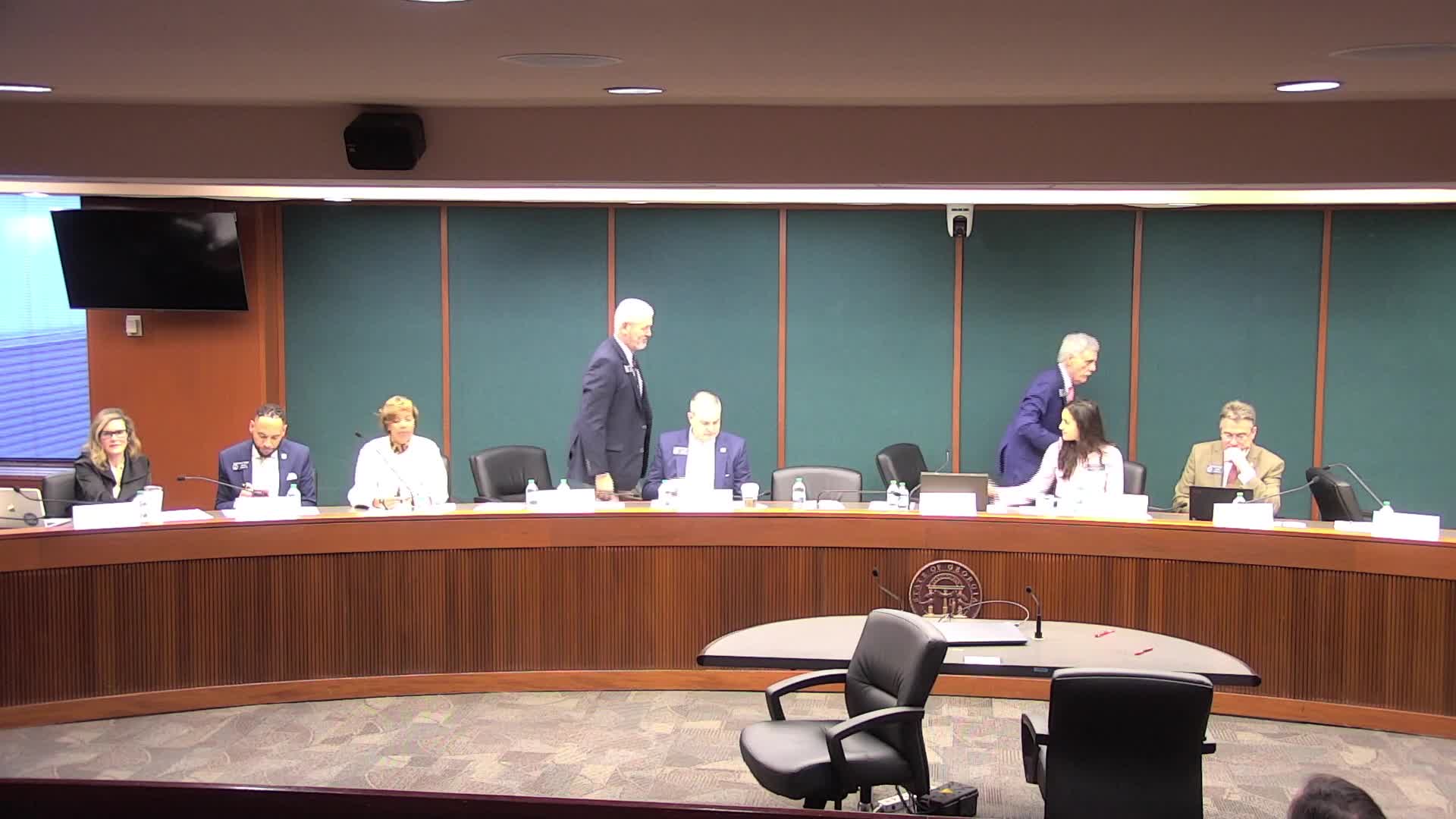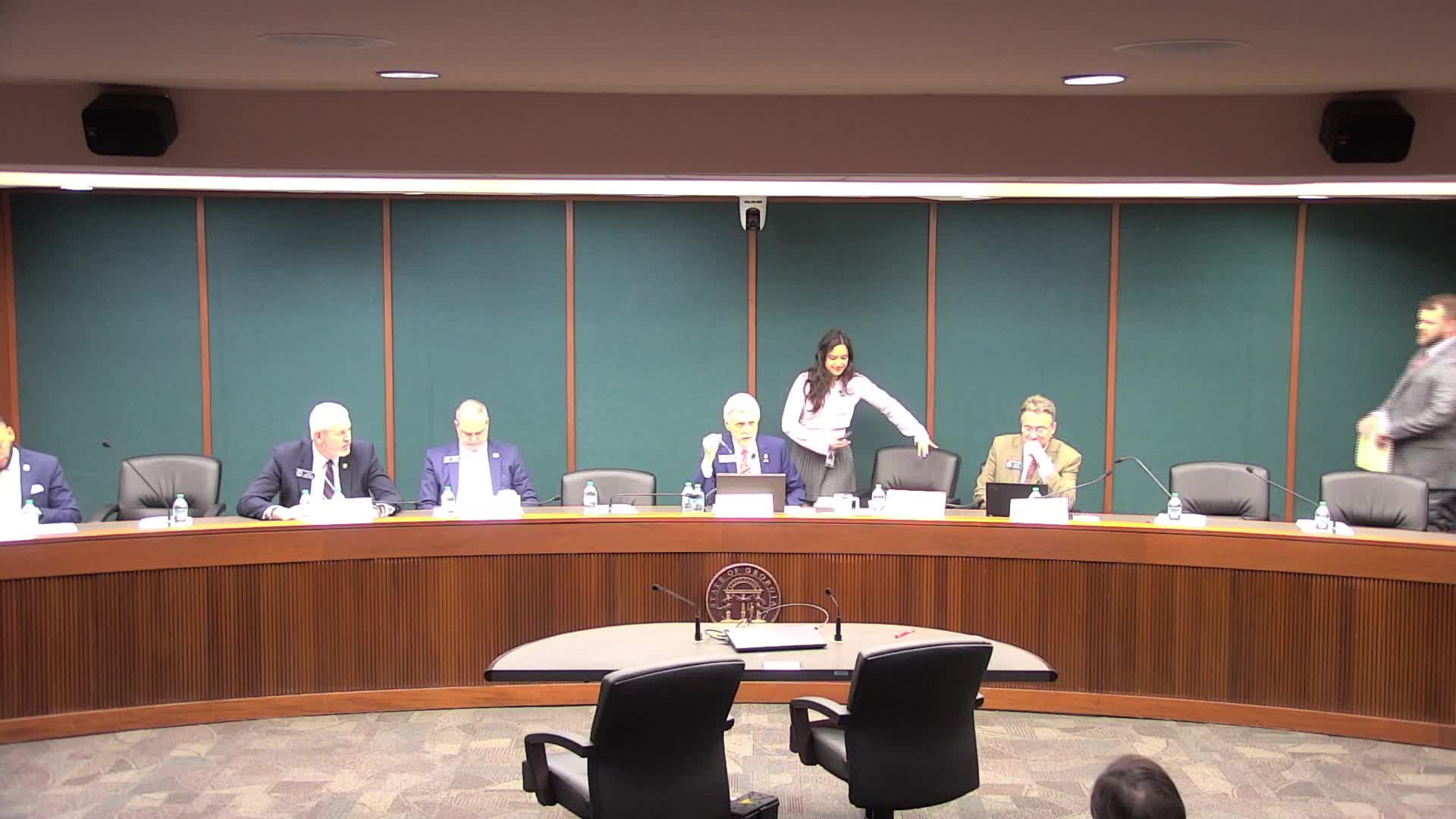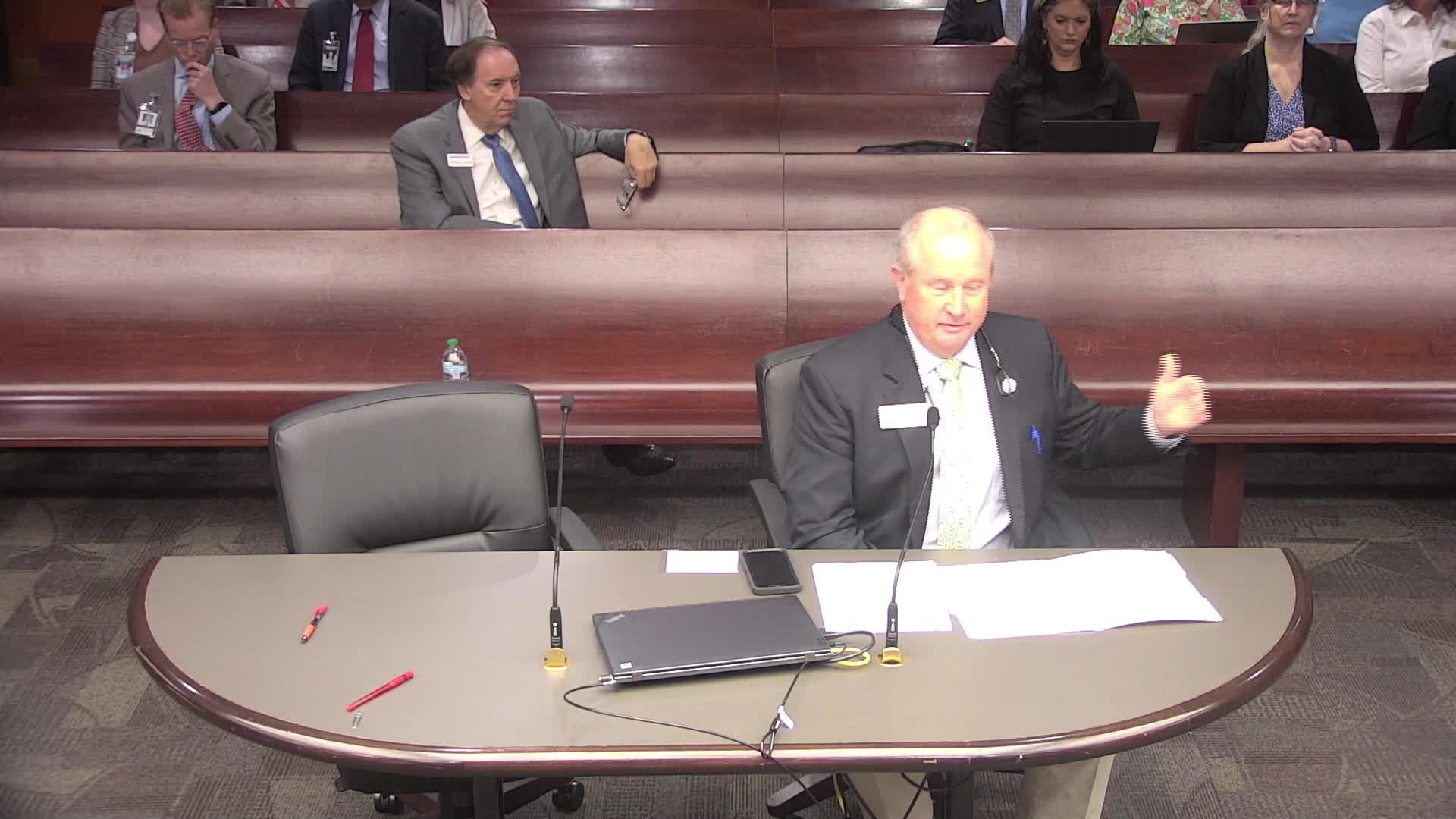Article not found
This article is no longer available. But don't worry—we've gathered other articles that discuss the same topic.

Senate committee urges coordinated review of teacher pipeline after data show thousands of vacancies

Georgia committee advances bill aligning literacy instruction with science of reading, adds dyslexia to state law

